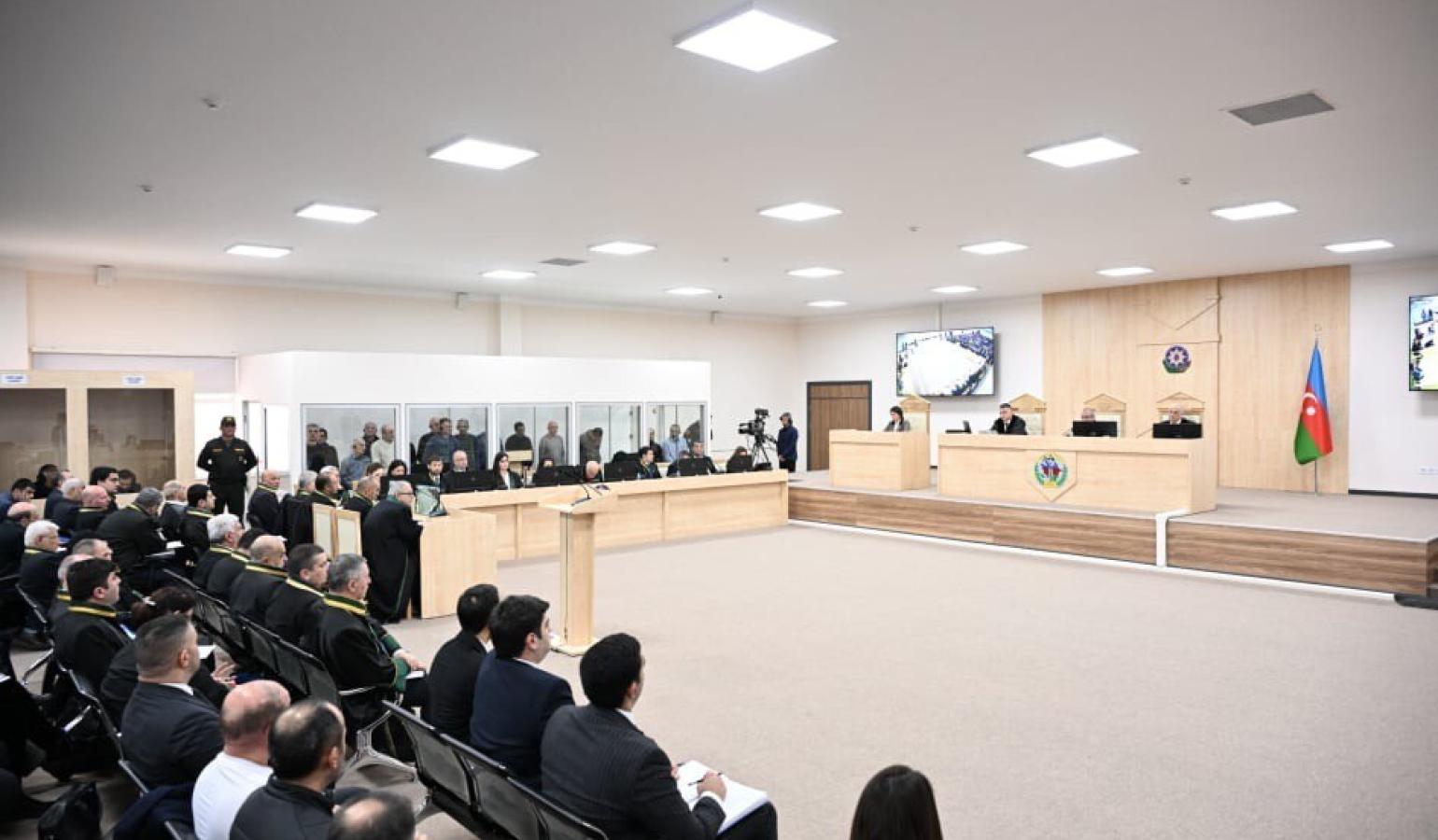
Siranush Sahakyan, a human rights defender and director of the Center for International and Comparative Law, answered questions in the "Panorama-Interviews" studio regarding the staged trials against Artsakh's military-political leadership and other Armenian prisoners in Baku, the international legal context of the Artsakh conflict, as well as Armenia's stance and the lack of awareness on international platforms.
Addressing the ongoing trials in Baku, Sahakyan noted that they have several objectives: internal political, demonstrating strength and repositioning the Aliyev clan, and also an external component. "In these trials, we see a red line, a direction indicating that all actions were planned, prepared, and instructed by the Republic of Armenia. This is not accidental, as Azerbaijan's foreign policy theses were related to violating Azerbaijan's territorial integrity. Through these trials, Azerbaijan is seemingly gathering an evidentiary base to show that in the 1990s, the population of Artsakh did not self-determine; rather, the Republic of Armenia showed aggression, occupied 'Azerbaijani territory,' and established its puppet regime in that territory to maintain sovereignty and control over Azerbaijani territories. Under such theses, it is clear that the issue is exclusively political."
The Prosecutor General's Office of Azerbaijan even announced that there are culprits located in Armenia. The journalist inquired how Armenia's authorities' behavior would be assessed in this situation, and whether there are certain agreements that they will not be accused later. Sahakyan believes that such guarantees cannot exist, as even political commitments made with the participation of mediating countries have been violated in Armenian-Azerbaijani relations.
"At a time when testimonies were extorted or artificial accusations were leveled against former authorities, we did not observe active behavior from the current authorities here. However, when, for example, the 2020 war or military operations towards Ganja became a subject of discussion, and views were voiced from Azerbaijani trials that these were agreed upon with the then-current authorities, against this backdrop, we had the Prime Minister's statement that prisoners are subjected to various influences, violence, even the use of psychotropic drugs. My interpretation is that the moment the current authorities became targets, the hypothesis of psychotropic drug use was advanced to undermine and reduce the credibility of those statements, so that these statements would turn into delusions. But under conditions where the same prisoners, under torture, were giving other statements harmful to Armenia's interests, no such reactions were voiced. Therefore, unfortunately, these reactions are also highly political in nature," the human rights defender stated, speaking about the stance of Armenia's authorities.
She noted with regret that the international community is often unaware of what is happening in Azerbaijan, and a lack of awareness is also observed in international legal platforms that are informed by stories to some extent. The problem also exists in diplomatic forums. For example, they were unaware that Azerbaijan had given notice to cease the activities of the International Committee of the Red Cross.
Regarding the provision in the peace agreement on the withdrawal of claims from international instances, Sahakyan emphasizes that although it is bilateral, the claims do not have the same legal value. Azerbaijan presents "false claims" that will be considered unfounded in court proceedings. As proof, she cites the decision of the International Court of Justice, which rejected Azerbaijani objections to the Armenian claim. "If we renounce the claims, it turns out that we legitimize Azerbaijani gains. That is, we consider Azerbaijan's aggression against Armenia and the deployment of Azerbaijani troops in Armenia's sovereign territory permissible. We accept that Artsakh can no longer have autonomy, and the right of Artsakh residents to return does not exist," Sahakyan warns.
The human rights defender has previously spoken about other Armenian prisoners held in Azerbaijan, apart from the 23. Sahakyan mentions at least 80 forcibly disappeared persons whose capture the Azerbaijani authorities deny, despite evidence from the Armenian side. "The Republic of Azerbaijan will be solely responsible for their fates. In various instances, they give the same response: that the mentioned individuals were not under Azerbaijani control, Azerbaijan has no information about them, the commission dealing with prisoners and hostages does not have the names of the mentioned individuals in its confirmed list of prisoners, and similar formal approaches. They try to deny and reject responsibility for the fates of these 80 individuals, but international legal proceedings are underway concerning all of them, and I believe that Azerbaijan's responsibility for the fates of these individuals will also be substantiated through judicial processes."